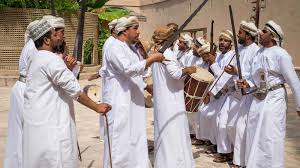The Heart of Omani Hospitality
Hospitality in Oman is not simply a gesture; it is a way of life deeply embedded in the country’s traditions and values. When you step into an Omani home, the warmth you experience goes beyond words. Every guest is treated with respect and kindness, regardless of who they are or where they come from. Omanis consider it an honor to host others, and this sense of generosity forms the foundation of their social fabric.
From the moment a guest arrives, they are welcomed with smiles, open arms, and a sense of belonging. This initial greeting sets the tone for the entire interaction, creating an atmosphere of comfort and trust. Unlike cultures where hospitality might feel formal or transactional, Omani hospitality is genuine and heartfelt.
Welcoming Guests with Coffee and Dates
One of the most recognizable symbols of Omani hospitality is the serving of coffee, known locally as “qahwa,” along with fresh or dried dates. This is not just a tradition but also a reflection of the country’s identity. The preparation of Omani coffee involves adding cardamom and sometimes rose water, creating a unique flavor that instantly reflects the richness of the culture.
Dates, on the other hand, symbolize generosity and abundance. Offering them to guests reflects the host’s wish to provide nourishment and sweetness to their visitors. Together, qahwa and dates form a timeless ritual of welcome that has been passed down for generations. It is not about luxury or extravagance but about respect, connection, and the joy of sharing.
Social Etiquette Rooted in Respect
Etiquette in Oman is guided by respect, modesty, and politeness. Every interaction is shaped by cultural values that prioritize harmony and dignity. When Omanis greet each other, the words carry weight, but so does the tone and gesture. A warm handshake or a light embrace between men, often accompanied by inquiries about one’s health and family, reflects sincerity and care.
Politeness extends beyond verbal greetings. For instance, when entering a gathering, it is customary to greet everyone individually, even if the group is large. This act ensures that no one feels left out or overlooked. In Omani culture, acknowledging others is a reflection of humility and an essential part of social etiquette.

The Role of Family in Social Interactions
Family lies at the heart of Omani society. Social etiquette and hospitality often revolve around maintaining strong family ties. Large family gatherings, celebrations, and shared meals are frequent, and they provide opportunities to reinforce bonds across generations. Elders are given special respect, and their opinions hold weight in discussions and decision-making.
Hospitality in Oman extends naturally within families as well. When relatives visit, they are treated with the same reverence and kindness as honored guests. This blending of family and hospitality highlights how Omanis view relationships not as obligations but as opportunities for connection and unity.
Modesty and Thoughtfulness in Everyday Life
An important aspect of Omani etiquette is modesty. This does not only refer to attire, although traditional clothing reflects cultural values of simplicity and dignity, but also to behavior and speech. Omanis take pride in speaking thoughtfully, avoiding arrogance or unnecessary conflict. Conversations are expected to be courteous, with listening valued as much as speaking.
This emphasis on modesty contributes to the calm and respectful atmosphere in Omani society. Even in professional or public settings, one notices the care with which Omanis interact with each other, maintaining harmony and balance.
Generosity Beyond the Home
Hospitality in Oman is not confined to private homes. It extends into the wider community and even to strangers. Whether it is offering directions to a traveler, sharing food during a celebration, or extending help to someone in need, Omanis live by a spirit of generosity that transcends personal boundaries.
In villages and towns, it is common for passersby to be invited for a meal or a cup of coffee. This spontaneous hospitality stems from a belief that kindness strengthens the community and reflects one’s character. For Omanis, being hospitable is both a duty and a joy.
The Art of Hosting Celebrations
Celebrations in Oman are marked by elaborate displays of hospitality. Weddings, national holidays, and religious festivals provide opportunities for families to open their homes and share their happiness with others. Guests are often treated to large meals featuring traditional dishes such as shuwa, a slow-cooked lamb dish prepared in an underground oven, or harees, a wheat and meat delicacy.
During such events, etiquette is particularly important. Guests are offered the best of what the household has, and hosts ensure that everyone feels included and valued. It is not unusual for families to prepare food for days in advance, highlighting the effort and pride Omanis put into welcoming others.
Respect in Daily Etiquette
The small details of daily life also reflect Omani etiquette. For example, it is considered polite to use the right hand when giving or receiving items, as the left hand is traditionally avoided in such exchanges. Similarly, raising one’s voice unnecessarily in public is frowned upon, as it disrupts the atmosphere of respect and calm that Omanis value deeply.
Even in business settings, etiquette plays a role. Meetings often begin with informal conversations about well-being, family, or shared interests before moving into professional discussions. This approach demonstrates that relationships matter more than transactions.
Guests as a Blessing
A central belief in Omani hospitality is that guests bring blessings to the home. This idea elevates the act of hosting beyond obligation it becomes an honor. Hosts go out of their way to ensure that guests feel comfortable, offering them food, drinks, and even resting places if needed.
Guests, in turn, are expected to show gratitude and humility. Expressing appreciation for the hospitality received is an important part of the exchange, reinforcing the mutual respect that underpins social interactions in Oman.
Food as a Language of Connection
Food plays a major role in Omani hospitality. Beyond nourishment, meals are a form of connection and expression. Sharing food symbolizes trust, unity, and joy. Traditional dishes carry stories of the land, the climate, and the people who have cultivated them for centuries.
Whether it is a simple offering of dates or an elaborate feast, the act of sharing food reflects the values of generosity and community. Sitting together, eating from shared platters, and enjoying conversations over meals are everyday practices that strengthen relationships and foster belonging.
Hospitality in Modern Times
While Oman has embraced modernity, its hospitality and etiquette remain intact. Hotels, restaurants, and businesses all reflect the same values of warmth and service that one finds in traditional homes. Visitors often remark on the friendliness of the people, whether in a marketplace, a rural village, or a modern city.
Technology and globalization have introduced new ways of interacting, yet the essence of Omani hospitality has remained unchanged. Social media, for instance, has become a tool for extending invitations and maintaining connections, but the core practices offering coffee, showing respect, and valuing relationships—remain constant.
The Spiritual Dimension of Hospitality
For Omanis, hospitality is not just cultural; it also carries a spiritual dimension. Many view generosity as a moral responsibility and an expression of faith. Welcoming guests, sharing food, and helping others are seen as virtuous acts that align with ethical and religious principles.
This spiritual foundation gives Omani hospitality its depth. It is not performed for show but arises from a genuine desire to serve others and create harmony. The act of giving is believed to bring blessings both to the host and the guest, creating a cycle of goodwill.

How Visitors Experience Omani Etiquette
Travelers to Oman often share stories of unexpected kindness and generosity. Whether being invited to a family home, offered directions with patience, or greeted with a warm smile in a market, these moments leave lasting impressions. For many, the hospitality they experience becomes the highlight of their visit, often more memorable than the landscapes or monuments.
Visitors also learn that etiquette is a two-way practice. While Omans is extend hospitality generously, they also appreciate when guests respect cultural norms, such as dressing modestly, greeting politely, and showing gratitude. This mutual exchange creates a deeper connection and enriches the experience for both sides.
The Lasting Impact of Hospitality
Hospitality and etiquette in Oman go beyond social customs; they shape the country’s identity. They influence how communities interact, how traditions are preserved, and how outsiders perceive the nation. This culture of kindness builds bridges not only within families and neighborhoods but also with the wider world.
For Omanis, these practices are a source of pride, representing the timeless values of respect, humility, and generosity. They are passed down from one generation to the next, ensuring that the spirit of hospitality remains strong even as society evolves.
Lessons for the Modern World
In a fast-paced, globalized world, Oman’s hospitality offers valuable lessons. It reminds us of the importance of slowing down, valuing human connections, and treating others with dignity. The Omani way shows that hospitality is not about luxury or status it is about sincerity, respect, and the joy of sharing.
By practicing these values, Oman has built a society where strangers become friends and where kindness forms the backbone of daily life. It is a reminder that true hospitality is timeless and that small acts of generosity can have a profound impact.
Conclusion: A Culture of Warmth and Respect
Omani hospitality and social etiquette reflect more than tradition; they embody a worldview that values human connection above all else. From offering coffee and dates to showing respect in everyday interactions, these practices demonstrate the country’s deep commitment to generosity and grace.
For visitors and locals alike, the experience of Omani hospitality is unforgettable. It nurtures a sense of belonging, creates lasting bonds, and showcases the beauty of a culture where respect and kindness are at the heart of everything. timeless culture of warmth and grace continues to inspire the world, offering a powerful example of how hospitality and etiquette can shape societies and enrich lives.
Do follow Gulf Magazine on Instagram.
Also Read – Timeless Beauty of Omani Hand-Woven Textiles



